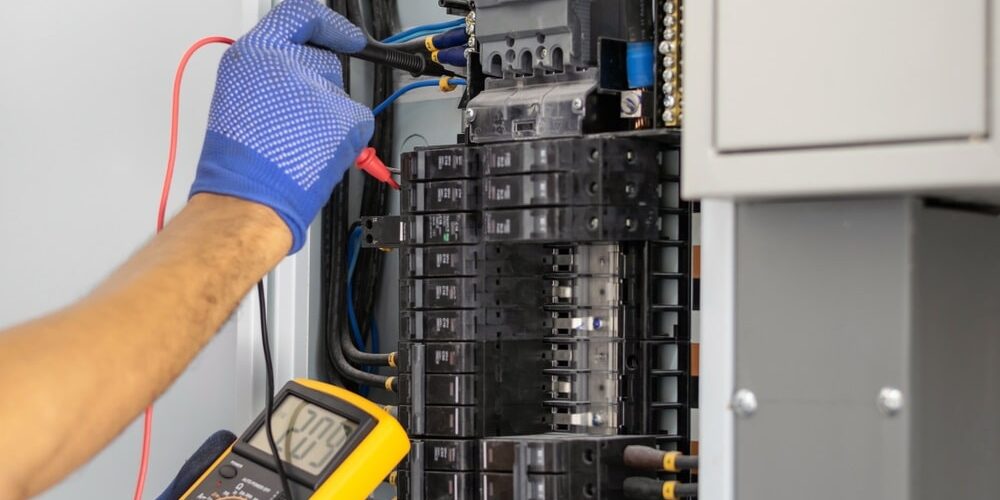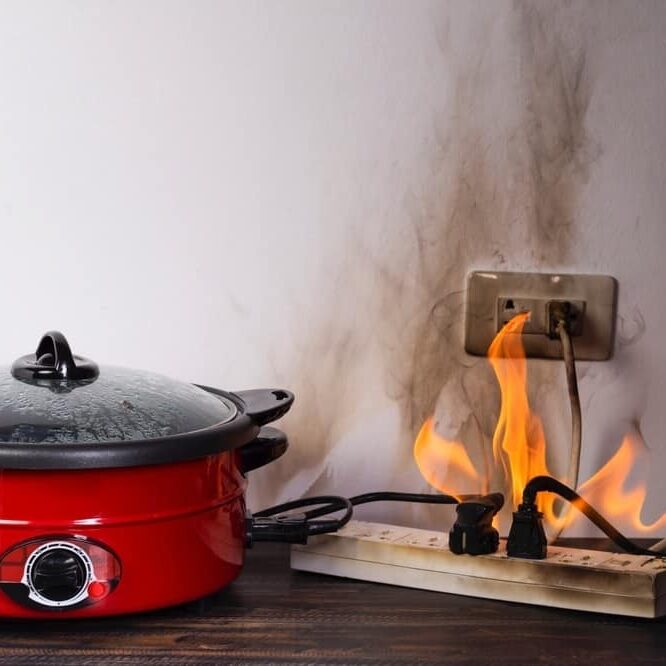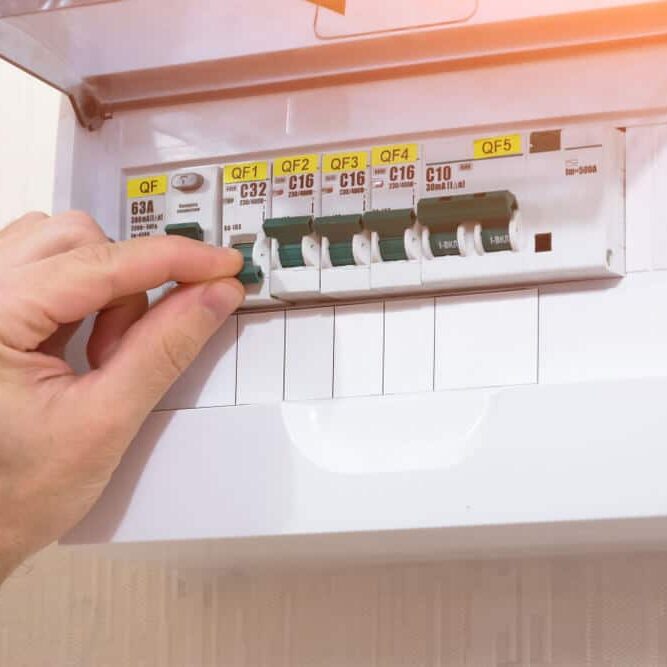Electricity is an essential service we all use every day. It makes almost everything about modern life easier. Most of us take electricity for granted because it's always been just a switch away. From lighting our living spaces to keeping them comfortable in hot and cold seasons, electricity powers many crucial appliances in our homes and in our lives. How many electrical devices can you identify in your immediate vicinity? We're very used to the presence of electricity all around us much of the time we spend indoors.

Signs of Common Electrical Issues
There is some downside, though: electricity is responsible for about 50,000 preventable house fires a year, according to the Electric Safety Foundation. Many of these fire hazards are hidden behind the walls of our homes. We don't take the time to think about it. If it works, it seems automatic, seamless, and infallible. But what happens when electrical issues arise? How can you spot electrical problems in your home? If you know the warning signs, you can make proactive fixes that will help protect your home. Here are ten signs you may have a common electrical issue and what you can do to correct it.
1. Odors
New appliances might smell a little unfamiliar when first installed - most of the time, this isn't serious. It could be something superficial, like the paint or finish on the appliance. However, if you notice a strange smell coming from an electrical outlet, unplug connected devices immediately until an electrician can check it out. The same goes for the fuse box - if you smell something, call a qualified electrician immediately.
2. Arc Faults
Arc faults happen when an electrical circuit misfires off its intended route, usually through a break in the wiring. Arc faults are responsible for many electrical fires. Arc faults can be prevented with an arc-fault circuit interrupter (AFCI) device. They can be pricey, but they can be worth the cost, especially in older homes where wiring might have worn in places over time.
3. Counterfeit Products
Watch out if you've ever purchased a standard electrical device for your home, like an extension cord, a power strip, or a night light. If these devices aren't up to government standards, you might be using a hazardous product. Always check for the Underwriters Laboratory (UL) seal, which you'll probably recognize from purchasing products over the years, and make sure you're buying from a legitimate source.
4. Warm Outlets / Sparking Outlets and Switches
Have you ever plugged something into an outlet only for it to start sparking? Perhaps you have plugged a cable into an outlet and noticed how warm it was. This might seem obvious, but those little sparks from your light switch should be treated as a hazard. Call an electrician right away to investigate the cause of the sparking.

5. Buzzing / Sizzling Sounds
A properly functioning electrical device should be silent. If you hear cracking, snapping, or popping sounds when plugging in a device or flipping the switch, turn off the power to that outlet as quickly as possible. Serious fire danger lurks, and you will want to contact a professional electrician to investigate further.
6. Broken Light Switches / Loose Outlets
Switches or outlets that work inconsistently could indicate bad wiring behind the wall and are yet another significant fire hazard. An unfixed outlet could also give an unwitting user a dangerous electrical shock. Any part of an outlet that is exposed could be of great concern and should be treated as highly dangerous.
7. Flickering Lights
Have you ever seen the lights flicker on and off during a thunderstorm? Often this is due to a power surge moving through the electric grid. Just like in storms, any sign of flickering lights could be a power surge. It doesn't necessarily indicate a dangerous situation but a problem where home appliances are drawing more power than the electrical system in your home can handle. If you're seeing flickering lights regularly, though, watch out. You might need to upgrade the wiring in your home to handle the extra current. This is a common problem in older homes and apartments.
8. Hot Ceiling Fixtures
Check ceiling fixtures and the areas around them for abnormal warmth - it could indicate poor insulation. Additionally, if you're using bulb wattages beyond the recommended limits on an appliance, that can cause dangerous overheating. Compact fluorescent light (CFL) or light-emitting diode (LED) lights are standard bulbs that don't produce the same heat as traditional incandescent bulbs.
9. Rodent Droppings
If you're finding rodent droppings in and around your home, you might have more than one problem. Beyond being pests, rats and mice love to chew on electrical wiring. If you see signs of rodents, be sure to check for any signs of electrical damage. A pest control service might be necessary, and a follow-up with an electrician to check for any electrical damage might be needed.
10. Circuit Breaker Problems
Circuit breakers are a home's defense mechanism against overload. When a circuit breaker trips, it prevents overheating and fire hazards by shutting down electricity to the overloaded circuit. Some tripping of the circuit is normal and likely the result of one too many appliances plugged in a particular area of your home. If a circuit trips regularly and repeatedly, you may want to have an electrician evaluate the wiring systems in your home.

